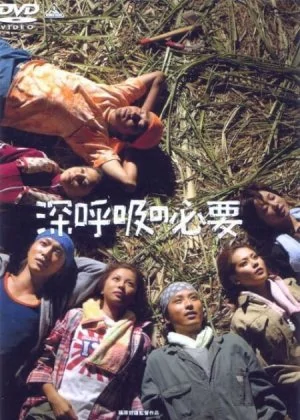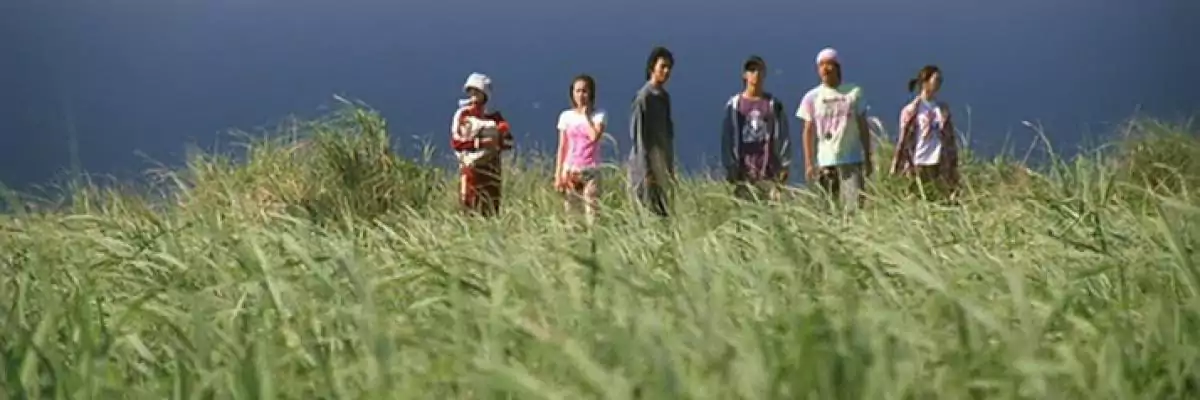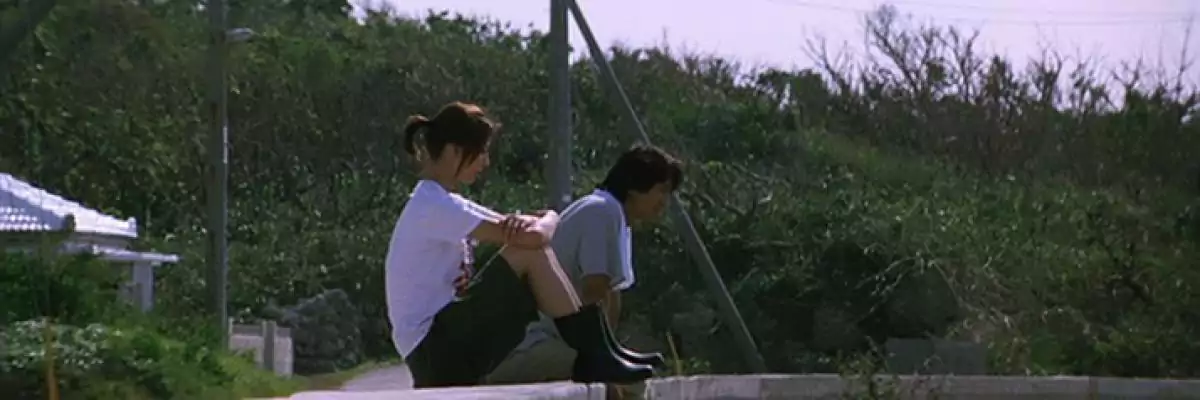Breathe In, Breathe Out

With March gone and April barely awake, it's the ideal moment to revisit Tetsuo Shinohara's Shinkokyu no Hitsuyo [Breathe In, Breathe Out]. Shinohara's drama, set during the Okinawan sugar cane harvest, is an unlikely little masterpiece that continues to prove its worth with each new viewing. This is the fourth time I watched the film and even though I started every viewing with considerable doubts, Breathe In, Breathe Out managed to overcome them effortlessly every single time.

Even after having watched it four times, I still find myself wondering what it is exactly that makes this such a great film. Tetsuo Shinohara isn't the greatest of directors, there's surprisingly little drama to support its running time and the rural setting isn't the most dashing. But much like Omohide Poro Poro the film has a very chill, de-stressing and relaxing effect. While the setup is extremely simple, Shinohara creates a strong bond with his characters, one that ultimately pays off in the end.
The film follows a small group of people who get together to help out an old farmer and his wife with the yearly sugar cane harvest. They get food, a place to sleep and a little money, in return they slave away to get the harvest done before the 31st of March, the final day the factory takes in the sugar canes. The harvesting is all done by hand, in the blistering sun (Okinawa has a subtropical climate), with only one day off a week. If you love to see other people work, this is a film you cannot miss out on.
You may believe this is all just a setup, a reason to bring these characters together and work through the group dynamic while giving each character his own dramatic background story. While that's partially true, it's definitely not as outspoken as you may suspect. For many the "trip" is indeed a perfect excuse to run away from their everyday problems and each character has its own demons to battle, but Shinohara keeps a lot to himself, often excluding the viewer from the finer details.

Visually it's a pleasant film. It may not be very spectacular, but Shinohara makes excellent use of the film's setting. Okinawa carries that typically rural Japanese look, it's just a bit sunnier than usual so prepare to be flooded by lots of blues and greens while our small group of characters works the fields. The camera work is what you can expect from a typical modern Japanese drama, so is the editing. It all combines to create a very warm, calm and soothing visual atmosphere.
The score is equally inviting. Again it's a pretty typical affair, with lots of piano melodies dominating the soundtrack, but the timing of the songs is impeccable and together with the sunny visuals they make for a very smooth, gentle experience. It comes as no surprise that Takeshi Kobayashi also scored a couple of Shunji Iwai's earlier films, though while watching Breathe In, Breathe Out I actually suspected the film was scored by Joe Hisaishi. I guess that's a pretty big compliment.
The cast consists mostly of lesser known actors, the only truly familiar name there is Nao Omori. He does a great job, but that's only to be expected. Fans of Japanese cinema may also recognize Hiroki Narimiya, who puts in one of the better performances of his career. The rest of the group isn't bad either, mind. At first their performances may seem to lack subtlety, but that quickly fades during the second half of the film. Special mentions go to the old couple running the farm, two superb characters played with such conviction that they feel completely real.

Somewhere halfway through the film one of the characters voices the obvious: that everyone is simply running away from their problems rather than face them head on. The remark is met with an affirmative silence as each of the people in the group reflects on their own motives to go on this work vacation. It could've been a turning point, a dramatic moment that would urge everyone to open up to the group, but Shinohara just lets it slide. Some characters do reveal why they came along, but most of them simply remain quiet. Nonetheless, this moment unites the group, even when the specifics of their problems remain vague and/or unsolved.
It sounds like a missed opportunity, a storytelling fail if you want, but in fact it adds a sense of realism that places you much closer to the characters. Much in the same way the old granny mothers the youngest of the group without ever asking about her problems, you start to feel for the characters without knowing the exact issues they're dealing with. It's a strong feeling that crushes any sense of sentimentality and keeps the drama pure and honest. And in return you get more scenes of the group working the field.
If you think it all sounds rather dull than that's perfectly understandable. The thing is, it really isn't. Breathe In, Breathe Out is a beautiful, pure, subtle and heart-warming drama. It's never flashy, showy or intrusive, instead it shows rather than tells. It's a little strange that Shinohara never even came close to reproducing the genius of this film, but that doesn't change the fact that Breathe In, Breathe Out is a film that deserves more recognition. It's a film that is terribly underwatched and underrated. If you have a soft spot for Japanese drama, this is a must see.